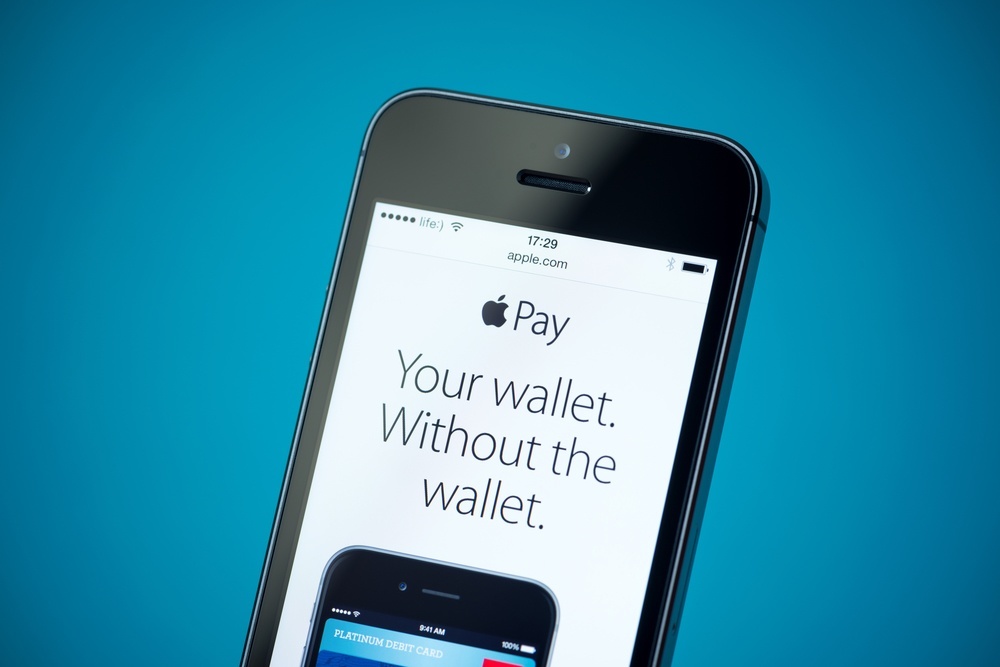Apple’s recent revolutionary mobile payment system known as Apple Pay, which was launched along with the latest launched iPhone 6 and iPhone 6 Plus promises to change the way payments are made. This is like a mobile wallet system wherein the user can make payments through his phone, without having the necessity to carry a credit card or debit card. Will Apple Pay really set a trend in money transfers or will it be just another product like Google Wallet or Nokia Money is what many are debating about.
Globally, mobile payments are yet to take off in a big way. Plastic money and cash are still the preferred modes of payment owing to a variety of reasons. However, with more and more people buying a smartphone, it is expected that the trend of making payments through mobiles will fast catch up. Apple has cashed in on this trend and has introduced Apple Pay looking to make your wallet obsolete, by partnering with Visa, MasterCard and American Express. Apple Pay is compatible with iPhone 6, iPhone 6 Plus, iPad Air 2 and iPad mini 3 for in Apps purchases and with iPhone 6, iPhone 6 Plus and Apple Watch for in Stores purchases.
Apple Pay is an easy and convenient method of making payments. This can be used to make payments at retail outlets and in mobile applications which have partnered with Apple. The user will first need to load his credit card information on the phone as a one time exercise. Instead of loading the information manually, one can also use the phone’s camera to scan the details of the card. It is possible to store information of multiple cards as well. When the card information is loaded on the phone, a unique Device Account Number is assigned, encrypted and secured in a dedicated chip. At the time of making a purchase at a retail outlet, the user must approach the payment terminal which accepts Apple Pay. Several outlets in the US have started accepting Apple Pay. When the user is near the payment terminal, he simply has to hold his finger on the Touch ID and the payment will be done. There is no need even to unlock the phone, open the app or activate the display of the phone. A subtle vibration and beep will let you know that the payment has been made.
Although Apple has made the mobile payment system extremely simple and easy to use, there are doubts on the safety and security of the system. This is because the user puts sensitive information on his phone which gets stored in cloud storage. However, Apple promises that security of the card information and the transaction is taken care of. To begin with, the credit card or debit card information is not stored on Apple servers. The payment is processed using the Device Account Number and a transaction specific dynamic security code. Therefore, the credit card information is also not shared with merchants. Further, the transaction details are also not stored on servers. They are stored in Passbook in your iPhone for your reference. Experts believe that the vulnerability lies more while entering the credit card information in the phone rather than at the time of making the payment. However, they believe that if this is done right, the system is safe and secure.
Apple Pay has definitely got several features and benefits which offer convenience in making payments. However, will this set a new trend in money transfers? Apple CEO Tim Cook thinks so. The system has had initial glitches as in the case of any other new technology. However, Apple Pay has generated more interest when compared to other mobile payment systems launched in the past by competitors. This could partly be because of the brand name enjoyed by Apple. The acceptance is also wider, as Apple has tied up with several leading banks in the US. This is another reason why there is more conviction in this mobile payment system. Apple on its part has also stressed considerably on the security part.
Apple Pay implies that the phone is the next credit card and is a step to make the wallet obsolete. With more and more merchants accepting Apple Pay, there is an expectation that this mobile payment system will become increasingly popular. It is also believed that the younger generation will adapt to this system faster than their older counterparts. The key to the success of Apple Pay is to sort out trust issues among its users and to convince them of its security. Apple Pay will certainly set a new trend in money transfers.
Are Others Likely to Follow Apple?
As Apple setting a trend in the payment industry, several other digital payment solutions are likely follow in the coming years. An India based mobile payment service called Immediate Payment Service (IMPS), which was launched by the National Payments Corporation of India (NCPI), Citrus Payment Solutions and Oxigen Services are few Indian companies who are offering mobile payments services in the country at present. While NCPI has declared over 400% growth in just one year Oxigen is setting targets for Rs 5,000 crore of transactions in 2014.
While mobile wallets are yet to be recognised for retail purchases at stores, it is likely to be happen in the days to come. While banks line the Us like Citi and Bank of America has introduced, mobile cheque deposit apps, by which one can make a deposit by taking its picture with your phone, banks will continue to innovate in virtual banking. The concept of mobile wallets which are to be popular in the coming days can store all your credit, debit and pre-paid cards in virtual format, thereby save you from carrying all these.
